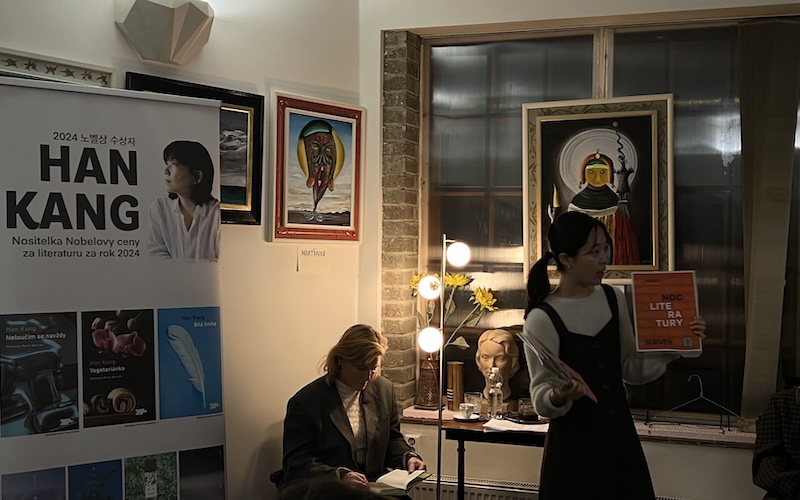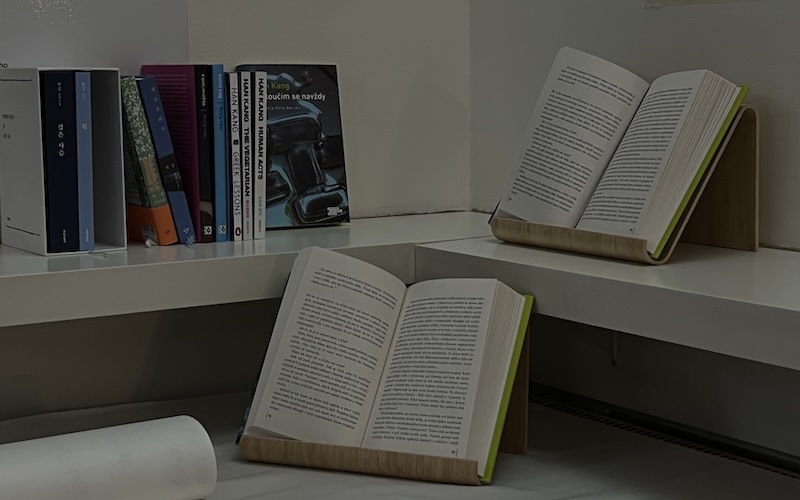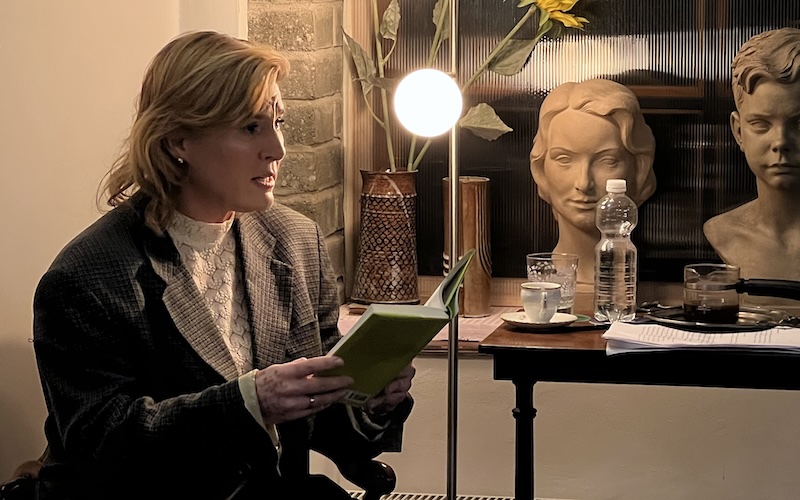On September 17, 2025, I joined the 19th annual Literature Night in Prague. The festival, organized by the Czech Centers together with EUNIC Prague, has over the years grown into a nationwide celebration. More than ninety towns and cities across the country took part. The idea behind it is simple: introduce contemporary European writing to the public through short readings, often in unusual or rarely open locations, performed by well-known actors.

This year’s theme, “The Book as a Refuge”, felt especially fitting. It suggested that literature is not only a source of ideas but also a place where one can hide, gather strength and return to with trust.
Republic of Korea appeared as the guest of honor, and Prague audiences had a chance to hear a Czech reading of Han Kang’s newest novel “We Do Not Part”. Actress Lenka Krobotová from the Dejvické Theater gave voice to the text. Readings were repeated every half hour, and each session filled up quickly. The rooms were crowded, yet quiet, with listeners following each line as if afraid to miss a word. Krobotová’s delivery gave the text intimacy, as if she was speaking directly to each person in the room.
Han Kang, known internationally since The Vegetarian and honored with the 2024 Nobel Prize in Literature, has built her reputation on exploring memory, human fragility and the weight of history. Her latest novel returned to the tragedy of the Jeju Massacre.

The novel follows Kyungha, a writer troubled by sleeplessness and nightmares, who travels to Jeju Island at the request of an old friend, Inseon. What begins as a simple favor - looking after a parrot - unfolds into an encounter with Inseon’s family history, a story shaped by absence, silence, and records kept by her mother in search of her missing brother. The narrative slips between dreams and reality, creating a haunting meditation on grief and survival.
The small gallery setting made the reading even more powerful. Some listeners leaned forward, others closed their eyes, letting the words settle. Many left with the sense that they had not only heard a story but briefly lived inside it.
For Prague’s audience, the evening offered a rare chance to meet Korean literature in an immediate and personal way. And in that room, surrounded by strangers listening together, Han Kang’s prose became what the festival promised: a refuge.

How about this article?
- Like0
- Support0
- Amazing0
- Sad0
- Curious0
- Insightful0


